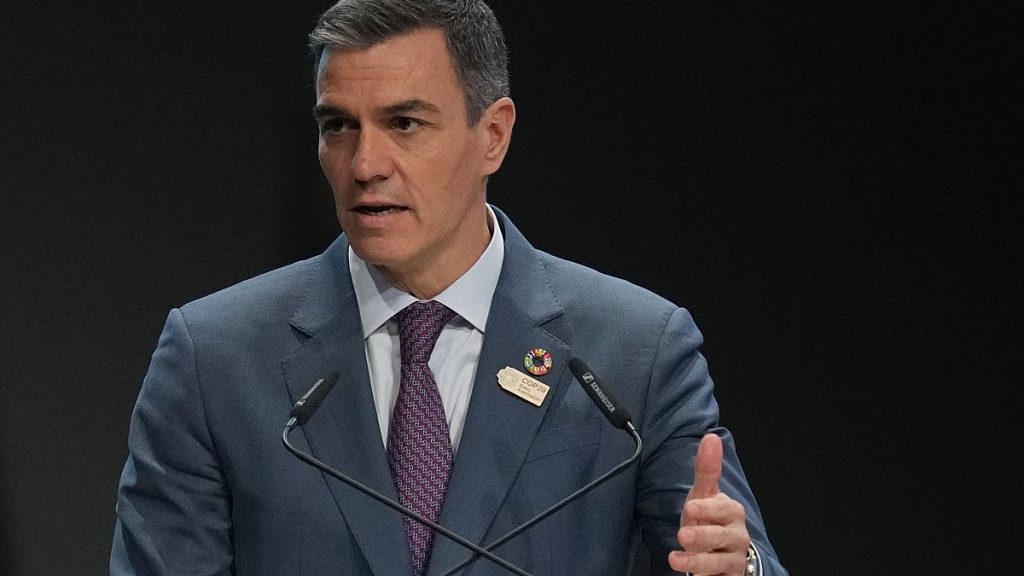Spain’s Democratic Journey: Commemorating 50 Years Since Franco and Reflecting on the Fragility of Freedom
Fifty years after the death of Francisco Franco, Spain commemorated the transition from dictatorship to democracy, a journey marked by significant progress yet shadowed by the resurgence of autocratic tendencies in Europe. Prime Minister Pedro Sánchez, speaking at the Reina Sofía Museum, inaugurated the "Spain in Freedom" program, a moment of reflection on the country’s achievements and a stark warning against the erosion of democratic values. His speech emphasized the hard-won freedoms gained since the oppressive Franco regime and underscored the constant vigilance required to safeguard them against the creeping threat of fascism and authoritarianism.
Sánchez’s address served as a potent reminder that democracy is not an inherent right but a continuously evolving project demanding constant nurturing and protection. He evoked the "dark years" of Franco’s rule, urging citizens, regardless of political affiliation, to recognize the fragility of democratic institutions. The Prime Minister highlighted the alarming rise of fascism in Europe, identifying it as a significant political force and a stark reminder of history’s potential to repeat itself. He pointedly criticized figures like Elon Musk, accusing them of leading a "reactionary international" that propagates disinformation and fuels hatred, further endangering democratic principles.
The Prime Minister’s message resonated with the need to actively defend democratic values against the insidious forces that threaten to undermine them. He stressed the importance of cross-ideological collaboration in safeguarding democracy, urging everyone, not just progressives, to participate in this crucial task. Sánchez called for a united front against the dissemination of "fake news," recognizing its power to manipulate public opinion and erode trust in democratic processes. He emphasized learning from past mistakes to prevent a regression into authoritarianism. The commemorative event, attended by government officials, union representatives, and cultural figures, underscored the collective responsibility to protect and strengthen Spain’s democratic foundations.
However, the absence of King Felipe VI, along with the leaders of the Popular Party and the far-right Vox party, cast a shadow over the event, highlighting the political divisions that persist in Spain. This absence underscored the challenges in forging a unified front against the threats to democracy. While Sánchez emphasized the need for a collective commitment transcending political ideologies, the lack of participation from key figures suggested the difficulty of achieving this unity in practice. The divisions raised questions about the shared commitment to preserving democratic values in the face of rising extremism.
The commemoration of Franco’s death and the subsequent democratic transition provided a crucial moment for national introspection. Sánchez’s speech served as a clarion call to remember the struggles of the past and to remain vigilant against the resurgence of authoritarianism. His warning about the rise of fascism and the spread of disinformation underscored the fragility of democratic institutions and the need for constant vigilance to protect them. The event, while marked by notable absences, highlighted the ongoing debate about Spain’s democratic future and the importance of collective action to safeguard its hard-won freedoms.
Sánchez’s appeal to remember the lessons of history and actively defend democratic values offers a powerful message not only for Spain but for the broader international community. The rise of autocratic tendencies and the spread of disinformation are global challenges that require collective action. The commemoration of Spain’s transition to democracy serves as a reminder that freedom is not a given but a constantly evolving project that demands continuous vigilance and active participation from all citizens. The future of democracy, both in Spain and globally, hinges on the ability to learn from the past, confront present challenges, and actively defend the principles of freedom and justice.














